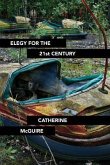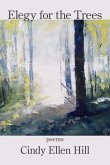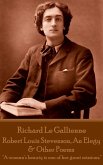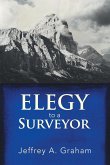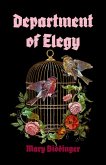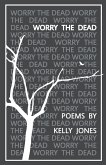In poems that move and accrue with the jazz-like fluidity of the mind, Scott Bade's newest collection emerges from the elegiac tradition, in which a death becomes a portal to meditations on love, selfhood, and the nature of memory itself. The portal likewise opens space for the contemplation of desire, perhaps grief's counterbalance. "Desire is the color of what leaves / but never leaves," he writes, beautifully linking the twin forces of death and the erotic. At the book's epicenter is father-as potent presence, then absence, in the speaker's life, in fathering his own children, and in the larger, archetypal ramifications of the word. "Oh seed, oh / bloom, oh line of lineage leaning for the exit," he writes of a son moving from the threshold into the world. Bade understands the affinity between loss and the lyric mode. "It was a blow that would continue / to sing," he writes in one poem, and in another, describes silence, even, as "a temple of listen, a song felt and unheard." Bade writes in both free verse improvisation and traditional and untraditional forms. One of my favorites is an erasure of a Dean Young poem, one of the book's muses. Erased, the opening reads simply, "I love / My father / he's dead." From these seven syllables comes a mature leaning into concrete reality, and its transformation. -Diane Seuss Scott Bade takes readers through a family history made out of moments of desire and loss, and readers experience the "little fire of joy that flares to life" at each new retelling. These poems use a wide range of forms to interrogate the legacy of fathers and the models of love they inherit and perpetuate. Tensions constantly tug at these poems, which question the chemical difference of feeling and memory; how the loss of a father and the loss of his body are distinct; and how the science of new life and the handshake of death can arrive mere pages apart. Bade sees the braid of generations, how "what's been given is also what's been made." He makes his poems a gift of fatherhood's tenderest lessons. -Traci Brimhall If a voice can listen, it's Bade's, and I love it: unassuming and attentive, restless and accepting, pitched in grief, full of wonder, whip-smart. So, it must also be the roving, steady, open mind inside that voice that keeps me plunging along poem after poem. The more I read, and re-read, and re-read these poems, the more my suspicions check out: it is the soul-Bade's-right there, on the page. And he's talking to me, to you. You'll see. You'll hear it, too, in the quiet room of your rapt attention as you enter moments you thought had nothing to do with you. Moments like: "Walking, I passed a mother and child, each crying for their own reason. Each alone. Together in a giant field of snow." And in realizations like: "Youth, too, is an excuse to bring the inside out, to use / Z as symbol, that unknown all of us know." And, maybe, like me, you'll marvel at how Bade contours loss with lines full of grace, how these poems pitched in grief bring joy in their wake anyway. -Alexander Long
Hinweis: Dieser Artikel kann nur an eine deutsche Lieferadresse ausgeliefert werden.
Hinweis: Dieser Artikel kann nur an eine deutsche Lieferadresse ausgeliefert werden.


